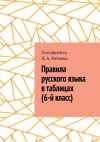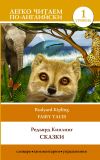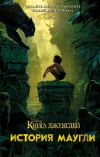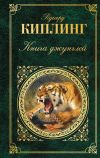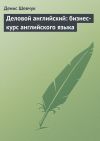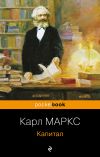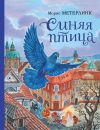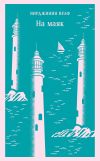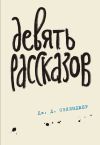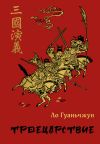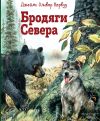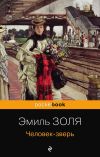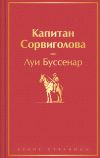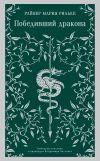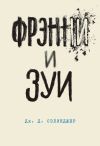
Автор книги: Редьярд Киплинг
Жанр: Зарубежная классика, Зарубежная литература
Возрастные ограничения: +12
сообщить о неприемлемом содержимом
Текущая страница: 6 (всего у книги 10 страниц)
If the beach was good and hard, with a slope behind it for seals to play on, there was always the smoke of a whaler on the horizon, boiling down blubber, and Kotick knew what that meant. Or else he could see that seals had once visited the island and been killed off, and Kotick knew that where men had come once they would come again.
He picked up with an old stumpy-tailed albatross, who told him that Kerguelen Island was the very place for peace and quiet, and when Kotick went down there he was all but smashed to pieces against some wicked black cliffs in a heavy sleet-storm with lightning and thunder. Yet as he pulled out against the gale he could see that even there had once been a seal nursery. And it was so in all the other islands that he visited.
Limmershin gave a long list of them, for he said that Kotick spent five seasons exploring, with a four months’ rest each year at Novastoshnah, when the holluschickie used to make fun of him and his imaginary islands. He went to the Gallapagos, a horrid dry place on the Equator, where he was nearly baked to death; he went to the Georgia Islands, the Orkneys, Emerald Island, Little Nightingale Island, Gough’s Island, Bouvet’s Island, the Crossets, and even to a little speck of an island south of the Cape of Good Hope. But everywhere the People of the Sea told him the same things. Seals had come to those islands once upon a time, but men had killed them all off. Even when he swam thousands of miles out of the Pacific and got to a place called Cape Corrientes (that was when he was coming back from Gough’s Island), he found a few hundred mangy seals on a rock and they told him that men came there too.
That nearly broke his heart, and he headed round the Horn back to his own beaches; and on his way north he hauled out on an island full of green trees, where he found an old, old seal who was dying, and Kotick caught fish for him and told him all his sorrows. “Now,” said Kotick, “I am going back to Novastoshnah, and if I am driven to the killing-pens with the holluschickie I shall not care.”
The old seal said, “Try once more. I am the last of the Lost Rookery of Masafuera, and in the days when men killed us by the hundred thousand there was a story on the beaches that some day a white seal would come out of the North and lead the seal people to a quiet place. I am old, and I shall never live to see that day, but others will. Try once more.”
And Kotick curled up his mustache (it was a beauty) and said, “I am the only white seal that has ever been born on the beaches, and I am the only seal, black or white, who ever thought of looking for new islands.”
This cheered him immensely; and when he came back to Novastoshnah that summer, Matkah, his mother, begged him to marry and settle down, for he was no longer a holluschick but a full-grown sea-catch, with a curly white mane on his shoulders, as heavy, as big, and as fierce as his father. “Give me another season,” he said. “Remember, Mother, it is always the seventh wave that goes farthest up the beach.”
Curiously enough, there was another seal who thought that she would put off marrying till the next year, and Kotick danced the Fire-dance with her all down Lukannon Beach the night before he set off on his last exploration. This time he went westward, because he had fallen on the trail of a great shoal of halibut, and he needed at least one hundred pounds of fish a day to keep him in good condition. He chased them till he was tired, and then he curled himself up and went to sleep on the hollows of the ground swell that sets in to Copper Island. He knew the coast perfectly well, so about midnight, when he felt himself gently bumped on a weed-bed, he said, “Hm, tide’s running strong tonight,” and turning over under water opened his eyes slowly and stretched. Then he jumped like a cat, for he saw huge things nosing about in the shoal water and browsing on the heavy fringes of the weeds.
“By the Great Combers of Magellan!” he said, beneath his mustache. “Who in the Deep Sea are these people?”
They were like no walrus, sea lion, seal, bear, whale, shark, fish, squid, or scallop that Kotick had ever seen before. They were between twenty and thirty feet long, and they had no hind flippers, but a shovel-like tail that looked as if it had been whittled out of wet leather. Their heads were the most foolish-looking things you ever saw, and they balanced on the ends of their tails in deep water when they weren’t grazing, bowing solemnly to each other and waving their front flippers as a fat man waves his arm.
“Ahem!” said Kotick. “Good sport, gentlemen?” The big things answered by bowing and waving their flippers like the Frog Footman. When they began feeding again Kotick saw that their upper lip was split into two pieces that they could twitch apart about a foot and bring together again with a whole bushel of seaweed between the splits. They tucked the stuff into their mouths and chumped solemnly.
“Messy style of feeding, that,” said Kotick. They bowed again, and Kotick began to lose his temper. “Very good,” he said. “If you do happen to have an extra joint in your front flipper you needn’t show off so. I see you bow gracefully, but I should like to know your names.” The split lips moved and twitched; and the glassy green eyes stared, but they did not speak.
“Well!” said Kotick. “You’re the only people I’ve ever met uglier than Sea Vitch – and with worse manners.”
Then he remembered in a flash what the Burgomaster gull had screamed to him when he was a little yearling at Walrus Islet, and he tumbled backward in the water, for he knew that he had found Sea Cow at last.
The sea cows went on schlooping and grazing and chumping in the weed, and Kotick asked them questions in every language that he had picked up in his travels; and the Sea People talk nearly as many languages as human beings. But the sea cows did not answer because Sea Cow cannot talk. He has only six bones in his neck where he ought to have seven, and they say under the sea that that prevents him from speaking even to his companions. But, as you know, he has an extra joint in his foreflipper, and by waving it up and down and about he makes what answers to a sort of clumsy telegraphic code.
By daylight Kotick’s mane was standing on end and his temper was gone where the dead crabs go. Then the Sea Cow began to travel northward very slowly, stopping to hold absurd bowing councils from time to time, and Kotick followed them, saying to himself, “People who are such idiots as these are would have been killed long ago if they hadn’t found out some safe island. And what is good enough for the Sea Cow is good enough for the Sea Catch. All the same, I wish they’d hurry.”
It was weary work for Kotick. The herd never went more than forty or fifty miles a day, and stopped to feed at night, and kept close to the shore all the time; while Kotick swam round them, and over them, and under them, but he could not hurry them up one-half mile. As they went farther north they held a bowing council every few hours, and Kotick nearly bit off his mustache with impatience till he saw that they were following up a warm current of water, and then he respected them more.
One night they sank through the shiny water – sank like stones – and for the first time since he had known them began to swim quickly. Kotick followed, and the pace astonished him, for he never dreamed that Sea Cow was anything of a swimmer. They headed for a cliff by the shore – a cliff that ran down into deep water, and plunged into a dark hole at the foot of it, twenty fathoms under the sea. It was a long, long swim, and Kotick badly wanted fresh air before he was out of the dark tunnel they led him through.
“My wig!” he said, when he rose, gasping and puffing, into open water at the farther end. “It was a long dive, but it was worth it.”
The sea cows had separated and were browsing lazily along the edges of the finest beaches that Kotick had ever seen. There were long stretches of smooth-worn rock running for miles, exactly fitted to make seal-nurseries, and there were play-grounds of hard sand sloping inland behind them, and there were rollers for seals to dance in, and long grass to roll in, and sand dunes to climb up and down, and, best of all, Kotick knew by the feel of the water, which never deceives a true sea catch, that no men had ever come there.
The first thing he did was to assure himself that the fishing was good, and then he swam along the beaches and counted up the delightful low sandy islands half hidden in the beautiful rolling fog. Away to the northward, out to sea, ran a line of bars and shoals and rocks that would never let a ship come within six miles of the beach, and between the islands and the mainland was a stretch of deep water that ran up to the perpendicular cliffs, and somewhere below the cliffs was the mouth of the tunnel.
“It’s Novastoshnah over again, but ten times better,” said Kotick. “Sea Cow must be wiser than I thought. Men can’t come down the cliffs, even if there were any men; and the shoals to seaward would knock a ship to splinters. If any place in the sea is safe, this is it.”
He began to think of the seal he had left behind him, but though he was in a hurry to go back to Novastoshnah, he thoroughly explored the new country, so that he would be able to answer all questions.
Then he dived and made sure of the mouth of the tunnel, and raced through to the southward. No one but a sea cow or a seal would have dreamed of there being such a place, and when he looked back at the cliffs even Kotick could hardly believe that he had been under them.
He was six days going home, though he was not swimming slowly; and when he hauled out just above Sea Lion’s Neck the first person he met was the seal who had been waiting for him, and she saw by the look in his eyes that he had found his island at last.
But the holluschickie and Sea Catch, his father, and all the other seals laughed at him when he told them what he had discovered, and a young seal about his own age said, “This is all very well, Kotick, but you can’t come from no one knows where and order us off like this. Remember we’ve been fighting for our nurseries, and that’s a thing you never did. You preferred prowling about in the sea.”
The other seals laughed at this, and the young seal began twisting his head from side to side. He had just married that year, and was making a great fuss about it.
“I’ve no nursery to fight for,” said Kotick. “I only want to show you all a place where you will be safe. What’s the use of fighting?”
“Oh, if you’re trying to back out, of course I’ve no more to say,” said the young seal with an ugly chuckle.
“Will you come with me if I win?” said Kotick. And a green light came into his eye, for he was very angry at having to fight at all.
“Very good,” said the young seal carelessly. “If you win, I’ll come.”
He had no time to change his mind, for Kotick’s head was out and his teeth sunk in the blubber of the young seal’s neck. Then he threw himself back on his haunches and hauled his enemy down the beach, shook him, and knocked him over. Then Kotick roared to the seals: “I’ve done my best for you these five seasons past. I’ve found you the island where you’ll be safe, but unless your heads are dragged off your silly necks you won’t believe. I’m going to teach you now. Look out for yourselves!”
Limmershin told me that never in his life – and Limmershin sees ten thousand big seals fighting every year – never in all his little life did he see anything like Kotick’s charge into the nurseries. He flung himself at the biggest sea catch he could find, caught him by the throat, choked him and bumped him and banged him till he grunted for mercy, and then threw him aside and attacked the next. You see, Kotick had never fasted for four months as the big seals did every year, and his deep-sea swimming trips kept him in perfect condition, and, best of all, he had never fought before. His curly white mane stood up with rage, and his eyes flamed, and his big dog teeth glistened, and he was splendid to look at.
Old Sea Catch, his father, saw him tearing past, hauling the grizzled old seals about as though they had been halibut, and upsetting the young bachelors in all directions; and Sea Catch gave a roar and shouted: “He may be a fool, but he is the best fighter on the beaches! Don’t tackle your father, my son! He’s with you!”
Kotick roared in answer, and old Sea Catch waddled in with his mustache on end, blowing like a locomotive, while Matkah and the seal that was going to marry Kotick cowered down and admired their men-folk. It was a gorgeous fight, for the two fought as long as there was a seal that dared lift up his head, and when there were none they paraded grandly up and down the beach side by side, bellowing.
At night, just as the Northern Lights were winking and flashing through the fog, Kotick climbed a bare rock and looked down on the scattered nurseries and the torn and bleeding seals. “Now,” he said, “I’ve taught you your lesson.”
“My wig!” said old Sea Catch, boosting himself up stiffly, for he was fearfully mauled. “The Killer Whale himself could not have cut them up worse. Son, I’m proud of you, and what’s more, I’ll come with you to your island – if there is such a place.”
“Hear you, fat pigs of the sea. Who comes with me to the Sea Cow’s tunnel? Answer, or I shall teach you again,” roared Kotick.
There was a murmur like the ripple of the tide all up and down the beaches. “We will come,” said thousands of tired voices. “We will follow Kotick, the White Seal.”
Then Kotick dropped his head between his shoulders and shut his eyes proudly. He was not a white seal any more, but red from head to tail. All the same he would have scorned to look at or touch one of his wounds.
A week later he and his army (nearly ten thousand holluschickie and old seals) went away north to the Sea Cow’s tunnel, Kotick leading them, and the seals that stayed at Novastoshnah called them idiots. But next spring, when they all met off the fishing banks of the Pacific, Kotick’s seals told such tales of the new beaches beyond Sea Cow’s tunnel that more and more seals left Novastoshnah.
Of course it was not all done at once, for the seals are not very clever, and they need a long time to turn things over in their minds, but year after year more seals went away from Novastoshnah, and Lukannon, and the other nurseries, to the quiet, sheltered beaches where Kotick sits all the summer through, getting bigger and fatter and stronger each year, while the holluschickie play around him, in that sea where no man comes.
LUKANNON
This is the great deep-sea song that all the St. Paul seals sing when they are heading back to their beaches in the summer. It is a sort of very sad seal National Anthem
I met my mates in the morning (and, oh, but I am old!)
Where roaring on the ledges the summer ground-swell rolled;
I heard them lift the chorus that drowned the breakers’ song —
The Beaches of Lukannon – two million voices strong.
The song of pleasant stations beside the salt lagoons,
The song of blowing squadrons that shuffled down the dunes,
The song of midnight dances that churned the sea to flame —
The Beaches of Lukannon – before the sealers came!
I met my mates in the morning (I’ll never meet them more!);
They came and went in legions that darkened all the shore.
And o’er the foam-flecked offing as far as voice could reach
We hailed the landing-parties and we sang them up the beach.
The Beaches of Lukannon – the winter wheat so tall —
The dripping, crinkled lichens, and the sea-fog drenching all!
The platforms of our playground, all shining smooth and worn!
The Beaches of Lukannon – the home where we were born!
I met my mates in the morning, a broken, scattered band.
Men shoot us in the water and club us on the land;
Men drive us to the Salt House like silly sheep and tame,
And still we sing Lukannon – before the sealers came.
Wheel down, wheel down to southward; oh, Gooverooska, go!
And tell the Deep-Sea Viceroys the story of our woe;
Ere, empty as the shark’s egg the tempest flings ashore,
The Beaches of Lukannon shall know their sons no more!
“RIKKI-TIKKI-TAVI”
At the hole where he went in
Red-Eye called to Wrinkle-Skin.
Hear what little Red-Eye saith:
“Nag, come up and dance with death!”
Eye to eye and head to head,
(Keep the measure, Nag.)
This shall end when one is dead;
(At thy pleasure, Nag.)
Turn for turn and twist for twist —
(Run and hide thee, Nag.)
Hah! The hooded Death has missed!
(Woe betide thee, Nag!)
This is the story of the great war that Rikki-tikki-tavi fought single-handed, through the bath-rooms of the big bungalow in Segowlee cantonment. Darzee, the Tailorbird, helped him, and Chuchundra, the muskrat, who never comes out into the middle of the floor, but always creeps round by the wall, gave him advice, but Rikki-tikki did the real fighting.
He was a mongoose, rather like a little cat in his fur and his tail, but quite like a weasel in his head and his habits. His eyes and the end of his restless nose were pink. He could scratch himself anywhere he pleased with any leg, front or back, that he chose to use. He could fluff up his tail till it looked like a bottle brush, and his war cry as he scuttled through the long grass was: “Rikk-tikk-tikki-tikki-tchk!”
One day, a high summer flood washed him out of the burrow where he lived with his father and mother, and carried him, kicking and clucking, down a roadside ditch. He found a little wisp of grass floating there, and clung to it till he lost his senses. When he revived, he was lying in the hot sun on the middle of a garden path, very draggled indeed, and a small boy was saying, “Here’s a dead mongoose. Let’s have a funeral.”
“No,” said his mother, “let’s take him in and dry him. Perhaps he isn’t really dead.”
They took him into the house, and a big man picked him up between his finger and thumb and said he was not dead but half choked. So they wrapped him in cotton wool, and warmed him over a little fire, and he opened his eyes and sneezed.
“Now,” said the big man (he was an Englishman who had just moved into the bungalow), “don’t frighten him, and we’ll see what he’ll do.”
It is the hardest thing in the world to frighten a mongoose, because he is eaten up from nose to tail with curiosity. The motto of all the mongoose family is “Run and find out,” and Rikki-tikki was a true mongoose. He looked at the cotton wool, decided that it was not good to eat, ran all round the table, sat up and put his fur in order, scratched himself, and jumped on the small boy’s shoulder.
“Don’t be frightened, Teddy,” said his father. “That’s his way of making friends.”
“Ouch! He’s tickling under my chin,” said Teddy.
Rikki-tikki looked down between the boy’s collar and neck, snuffed at his ear, and climbed down to the floor, where he sat rubbing his nose.
“Good gracious,” said Teddy’s mother, “and that’s a wild creature! I suppose he’s so tame because we’ve been kind to him.”
“All mongooses are like that,” said her husband. “If Teddy doesn’t pick him up by the tail, or try to put him in a cage, he’ll run in and out of the house all day long. Let’s give him something to eat.”
They gave him a little piece of raw meat. Rikki-tikki liked it immensely, and when it was finished he went out into the veranda and sat in the sunshine and fluffed up his fur to make it dry to the roots. Then he felt better.
“There are more things to find out about in this house,” he said to himself, “than all my family could find out in all their lives. I shall certainly stay and find out.”
He spent all that day roaming over the house. He nearly drowned himself in the bath-tubs, put his nose into the ink on a writing table, and burned it on the end of the big man’s cigar, for he climbed up in the big man’s lap to see how writing was done. At nightfall he ran into Teddy’s nursery to watch how kerosene lamps were lighted, and when Teddy went to bed Rikki-tikki climbed up too. But he was a restless companion, because he had to get up and attend to every noise all through the night, and find out what made it. Teddy’s mother and father came in, the last thing, to look at their boy, and Rikki-tikki was awake on the pillow. “I don’t like that,” said Teddy’s mother. “He may bite the child.” “He’ll do no such thing,” said the father. “Teddy’s safer with that little beast than if he had a bloodhound to watch him. If a snake came into the nursery now – ”
But Teddy’s mother wouldn’t think of anything so awful.
Early in the morning Rikki-tikki came to early breakfast in the veranda riding on Teddy’s shoulder, and they gave him banana and some boiled egg. He sat on all their laps one after the other, because every well-brought-up mongoose always hopes to be a house mongoose some day and have rooms to run about in; and Rikki-tikki’s mother (she used to live in the general’s house at Segowlee) had carefully told Rikki what to do if ever he came across white men.
Then Rikki-tikki went out into the garden to see what was to be seen. It was a large garden, only half cultivated, with bushes, as big as summer-houses, of Marshal Niel roses, lime and orange trees, clumps of bamboos, and thickets of high grass. Rikki-tikki licked his lips. “This is a splendid hunting-ground,” he said, and his tail grew bottle-brushy at the thought of it, and he scuttled up and down the garden, snuffing here and there till he heard very sorrowful voices in a thorn-bush.
It was Darzee, the Tailor-bird, and his wife. They had made a beautiful nest by pulling two big leaves together and stitching them up the edges with fibers, and had filled the hollow with cotton and downy fluff. The nest swayed to and fro, as they sat on the rim and cried.
“What is the matter?” asked Rikki-tikki.
“We are very miserable,” said Darzee. “One of our babies fell out of the nest yesterday and Nag ate him.”
“H’m!” said Rikki-tikki, “that is very sad – but I am a stranger here. Who is Nag?”
Darzee and his wife only cowered down in the nest without answering, for from the thick grass at the foot of the bush there came a low hiss – a horrid cold sound that made Rikki-tikki jump back two clear feet. Then inch by inch out of the grass rose up the head and spread hood of Nag, the big black cobra, and he was five feet long from tongue to tail. When he had lifted one-third of himself clear of the ground, he stayed balancing to and fro exactly as a dandelion tuft balances in the wind, and he looked at Rikki-tikki with the wicked snake’s eyes that never change their expression, whatever the snake may be thinking of.
“Who is Nag?” said he. “I am Nag. The great God Brahm put his mark upon all our people, when the first cobra spread his hood to keep the sun off Brahm as he slept. Look, and be afraid!”
He spread out his hood more than ever, and Rikki-tikki saw the spectacle-mark on the back of it that looks exactly like the eye part of a hook-and-eye fastening. He was afraid for the minute, but it is impossible for a mongoose to stay frightened for any length of time, and though Rikki-tikki had never met a live cobra before, his mother had fed him on dead ones, and he knew that all a grown mongoose’s business in life was to fight and eat snakes. Nag knew that too and, at the bottom of his cold heart, he was afraid.
“Well,” said Rikki-tikki, and his tail began to fluff up again, “marks or no marks, do you think it is right for you to eat fledglings out of a nest?”
Nag was thinking to himself, and watching the least little movement in the grass behind Rikki-tikki. He knew that mongooses in the garden meant death sooner or later for him and his family, but he wanted to get Rikki-tikki off his guard. So he dropped his head a little, and put it on one side.
“Let us talk,” he said. “You eat eggs. Why should not I eat birds?”
“Behind you! Look behind you!” sang Darzee.
Rikki-tikki knew better than to waste time in staring. He jumped up in the air as high as he could go, and just under him whizzed by the head of Nagaina, Nag’s wicked wife. She had crept up behind him as he was talking, to make an end of him. He heard her savage hiss as the stroke missed. He came down almost across her back, and if he had been an old mongoose he would have known that then was the time to break her back with one bite; but he was afraid of the terrible lashing return stroke of the cobra. He bit, indeed, but did not bite long enough, and he jumped clear of the whisking tail, leaving Nagaina torn and angry.
“Wicked, wicked Darzee!” said Nag, lashing up as high as he could reach toward the nest in the thorn-bush. But Darzee had built it out of reach of snakes, and it only swayed to and fro.
Rikki-tikki felt his eyes growing red and hot (when a mongoose’s eyes grow red, he is angry), and he sat back on his tail and hind legs like a little kangaroo, and looked all round him, and chattered with rage. But Nag and Nagaina had disappeared into the grass. When a snake misses its stroke, it never says anything or gives any sign of what it means to do next. Rikki-tikki did not care to follow them, for he did not feel sure that he could manage two snakes at once. So he trotted off to the gravel path near the house, and sat down to think. It was a serious matter for him.
If you read the old books of natural history, you will find they say that when the mongoose fights the snake and happens to get bitten, he runs off and eats some herb that cures him. That is not true. The victory is only a matter of quickness of eye and quickness of foot – snake’s blow against mongoose’s jump – and as no eye can follow the motion of a snake’s head when it strikes, this makes things much more wonderful than any magic herb. Rikki-tikki knew he was a young mongoose, and it made him all the more pleased to think that he had managed to escape a blow from behind. It gave him confidence in himself, and when Teddy came running down the path, Rikki-tikki was ready to be petted.
But just as Teddy was stooping, something wriggled a little in the dust, and a tiny voice said: “Be careful. I am Death!” It was Karait, the dusty brown snakeling that lies for choice on the dusty earth; and his bite is as dangerous as the cobra’s. But he is so small that nobody thinks of him, and so he does the more harm to people.
Rikki-tikki’s eyes grew red again, and he danced up to Karait with the peculiar rocking, swaying motion that he had inherited from his family. It looks very funny, but it is so perfectly balanced a gait that you can fly off from it at any angle you please, and in dealing with snakes this is an advantage. If Rikki-tikki had only known, he was doing a much more dangerous thing than fighting Nag, for Karait is so small, and can turn so quickly, that unless Rikki bit him close to the back of the head, he would get the return stroke in his eye or his lip. But Rikki did not know. His eyes were all red, and he rocked back and forth, looking for a good place to hold. Karait struck out. Rikki jumped sideways and tried to run in, but the wicked little dusty gray head lashed within a fraction of his shoulder, and he had to jump over the body, and the head followed his heels close.
Teddy shouted to the house: “Oh, look here! Our mongoose is killing a snake.” And Rikki-tikki heard a cream from Teddy’s mother. His father ran out with a stick, but by the time he came up, Karait had lunged out once too far, and Rikki-tikki had sprung, jumped on the snake’s back, dropped his head far between his forelegs, bitten as high up the back as he could get hold, and rolled away. That bite paralyzed Karait, and Rikki-tikki was just going to eat him up from the tail, after the custom of his family at dinner, when he remembered that a full meal makes a slow mongoose, and if he wanted all his strength and quickness ready, he must keep himself thin.
He went away for a dust bath under the castor-oil bushes, while Teddy’s father beat the dead Karait. “What is the use of that?” thought Rikki-tikki. “I have settled it all;” and then Teddy’s mother picked him up from the dust and hugged him, crying that he had saved Teddy from death, and Teddy’s father said that he was a providence, and Teddy looked on with big scared eyes. Rikki-tikki was rather amused at all the fuss, which, of course, he did not understand. Teddy’s mother might just as well have petted Teddy for playing in the dust. Rikki was thoroughly enjoying himself.
That night at dinner, walking to and fro among the wine-glasses on the table, he might have stuffed himself three times over with nice things. But he remembered Nag and Nagaina, and though it was very pleasant to be patted and petted by Teddy’s mother, and to sit on Teddy’s shoulder, his eyes would get red from time to time, and he would go off into his long war cry of “Rikk-tikk-tikki-tikki-tchk!”
Teddy carried him off to bed, and insisted on Rikki-tikki sleeping under his chin. Rikki-tikki was too well bred to bite or scratch, but as soon as Teddy was asleep he went off for his nightly walk round the house, and in the dark he ran up against Chuchundra, the musk-rat, creeping around by the wall. Chuchundra is a broken-hearted little beast. He whimpers and cheeps all the night, trying to make up his mind to run into the middle of the room. But he never gets there.
“Don’t kill me,” said Chuchundra, almost weeping. “Rikki-tikki, don’t kill me!”
“Do you think a snake-killer kills muskrats?” said Rikki-tikki scornfully.
“Those who kill snakes get killed by snakes,” said Chuchundra, more sorrowfully than ever. “And how am I to be sure that Nag won’t mistake me for you some dark night?”
“There’s not the least danger,” said Rikki-tikki. “But Nag is in the garden, and I know you don’t go there.”
“My cousin Chua, the rat, told me – ” said Chuchundra, and then he stopped.
“Told you what?”
“H’sh! Nag is everywhere, Rikki-tikki. You should have talked to Chua in the garden.”
“I didn’t – so you must tell me. Quick, Chuchundra, or I’ll bite you!”
Chuchundra sat down and cried till the tears rolled off his whiskers. “I am a very poor man,” he sobbed. “I never had spirit enough to run out into the middle of the room. H’sh! I mustn’t tell you anything. Can’t you hear, Rikki-tikki?”
Правообладателям!
Это произведение, предположительно, находится в статусе 'public domain'. Если это не так и размещение материала нарушает чьи-либо права, то сообщите нам об этом.